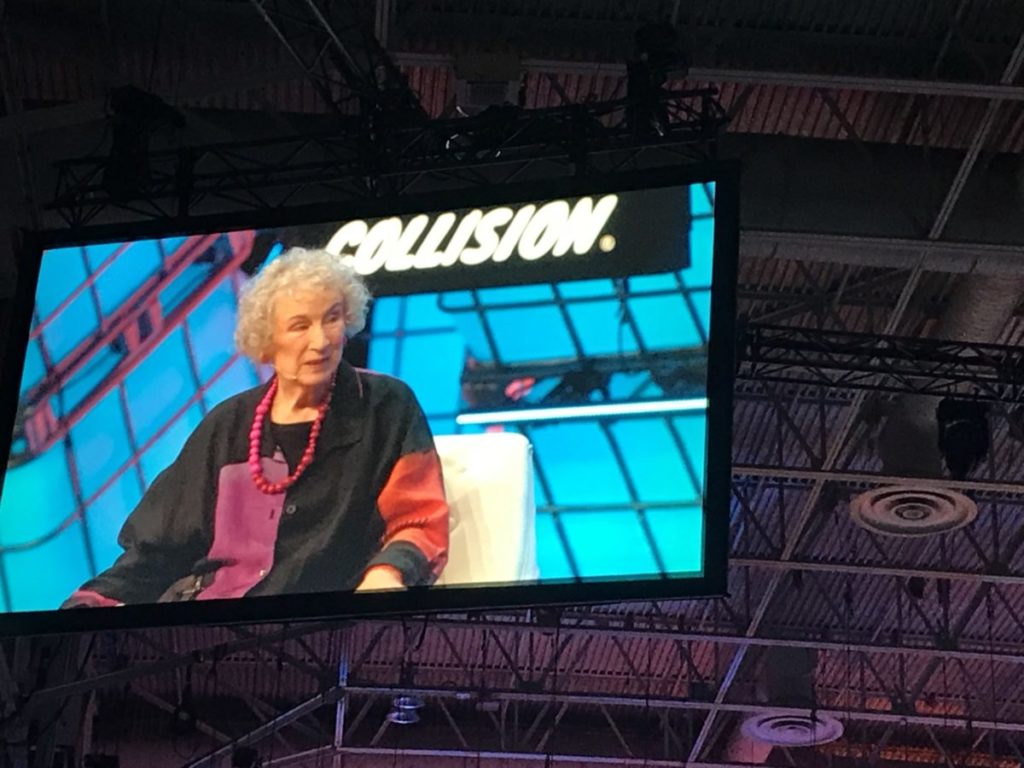
How does a writer of dystopian novels who invented Gilead, a place where women have very few rights, remain optimistic?
Famed Canadian author Margaret Atwood was asked that question Monday at the start of the Collision tech summit in Toronto. It came shortly after a conference host, Sunil Sharma, noted that Roe v Wade was about to “go up in flames” and that “nobody would have seen this coming, except for maybe Margaret Atwood.”
Atwood, author of “The Handmaid’s Tale,” was sage. “I’m really old,” she told a packed audience. “I can remember when it was worse.”
Born in 1939, the Toronto resident noted that young people today were born into a world “where it was pretty good.” But when she was growing up, “we didn’t have a lot of choice,” she said. And shifting the conversation toward the pandemic, she added: “We also didn’t have a lot of vaccines,” noting that people routinely were afflicted with polio, diphtheria, small pox and other illnesses.
“It’s not the worst of times yet,” she said. “We’re still in a moment where we could turn it around.”
As she did in a recent OpEd in The Atlantic, Atwood laid into the wording of the draft opinion overturning the landmark U.S. Supreme Court decision, in which Justice Samuel Alito notes that abortion wasn’t referenced in the Constitution. Neither were votes for women, she pointed out. Republican women in particular should “think twice” about that, she said — if abortion can be repealed, why not suffrage?
But Atwood ended her short time on the stage, which kicked off the 3-day summit, with more positive thoughts about the future, mentioning the “Practical Utopias” project that she has been leading on the online learning platform Disco.
Atwood is working with experts in various fields to help develop solutions to society’s most pressing problems, particularly climate change and social inequalities. The idea is to look at the basics – how people live, dress and eat – and see what improvements can be made. Potential remedies must be carbon-neutral, scalable and attractive, she said, displaying some trademark dry wit. “You can’t say dress in potato sacks and eat tofu.”
What also makes Atwood optimistic is that many solutions, particularly when it comes to the environment, are already being worked on. “Have you heard of mushroom shoes?” she asked the audience. “I have.” The solutions are “out there,” she said, repeating it for emphasis. “They are out there.”



